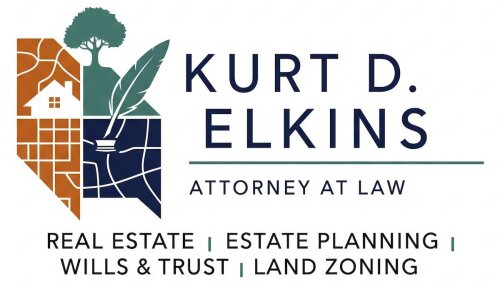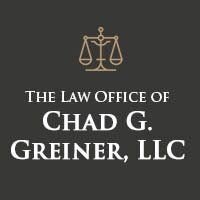Best Foreclosure Lawyers in United States
Share your needs with us, get contacted by law firms.
Free. Takes 2 min.
Free Guide to Hiring a Real Estate Lawyer
Or refine your search by selecting a city:
List of the best lawyers in United States
About Foreclosure Law in United States
Foreclosure is a legal process by which a lender attempts to recover the balance owed on a defaulted loan by taking ownership of the mortgaged property. In the United States, foreclosures can be judicial, where the process goes through the court system, or non-judicial, where the process is conducted outside of court through a power of sale clause included in the mortgage agreement. The foreclosure process varies significantly between states, with some states offering redemption periods or other homeowner protections.
Why You May Need a Lawyer
Facing foreclosure can be a daunting and complex situation that may require legal expertise. Here are some common reasons why you might need a foreclosure lawyer:
- Your lender has started foreclosure proceedings against you, and you want to contest it.
- You need assistance in negotiating a loan modification or other loss mitigation options.
- You suspect errors or unfair practices by your lender that could be grounds for challenging the foreclosure.
- You need help navigating federal programs that might offer relief or mediation services.
- You are considering filing for bankruptcy as a way to delay or prevent foreclosure and need to understand the implications.
Local Laws Overview
Foreclosure laws in the United States vary significantly between states, particularly in terms of the foreclosure process, homeowner rights, and available defenses. Key aspects include:
- Judicial vs. Non-Judicial Foreclosure: States differ in whether they require foreclosure to be processed through the courts. Judicial foreclosure involves court proceedings, whereas non-judicial foreclosure follows a process outlined in the mortgage agreement without court involvement.
- Redemption Periods: Some states allow a redemption period during which homeowners can reclaim their property by paying the full balance owed, even after the foreclosure sale.
- Deficiency Judgments: If the sale price of the foreclosed property is less than the total debt owed, some states allow lenders to seek a deficiency judgment, which is the difference between the sale proceeds and the debt.
Frequently Asked Questions
What is foreclosure?
Foreclosure is the process lenders use to repossess a home when the borrower fails to keep up with their mortgage payments.
How long does the foreclosure process take?
The duration can vary greatly depending on the state and whether it's a judicial or non-judicial foreclosure, ranging from a few months to over a year.
Can I stop the foreclosure process?
Options to stop foreclosure may include loan modification, repayment plan, short sale, deed in lieu of foreclosure, or bankruptcy, among other legal defenses.
What happens to my property during foreclosure?
Until the foreclosure sale, you retain ownership of your property. After the sale, ownership transfers to the lender or the purchaser at the foreclosure auction.
Am I responsible for any remaining debt after foreclosure?
In some states, if the home sells for less than what is owed, the lender may pursue a deficiency judgment for the remaining balance.
Can foreclosure affect my credit score?
Yes, foreclosure can significantly impact your credit score, remaining on your credit report typically for seven years.
What are my rights during foreclosure?
Homeowners have the right to receive notice of the proceedings and may have the right to reinstate the loan or redeem the property in some states before the foreclosure sale.
What if my foreclosure was conducted improperly?
If errors were made during the foreclosure process, it might be possible to challenge the validity of the foreclosure in court with the assistance of a lawyer.
How does filing for bankruptcy affect foreclosure?
Filing for bankruptcy can temporarily halt foreclosure proceedings through an automatic stay order, allowing time to reorganize debts.
Are there government programs that can help me avoid foreclosure?
Yes, there are federal programs like the Making Home Affordable Program and others, which aim to help homeowners avoid foreclosure through various relief options.
Additional Resources
Consider reaching out to the following resources for more information or assistance regarding foreclosure:
- Consumer Financial Protection Bureau (CFPB): Provides information and assistance for homeowners facing foreclosure.
- U.S. Department of Housing and Urban Development (HUD): Offers free or low-cost housing counselors to help with foreclosure prevention.
- State Housing Agencies: Many states have their agencies that provide resources and assistance for homeowners in distress.
- Legal Aid Societies: Offer pro bono legal help or guidance for those who cannot afford an attorney.
Next Steps
If you require legal assistance with foreclosure, consider the following steps:
- Contact a foreclosure attorney in your area to understand your rights and options.
- Prepare all relevant documents, including loan agreements, notice from the lender, and any correspondence with the lender.
- Consider consulting a housing counselor approved by HUD for guidance on available programs and solutions.
- Stay informed about your state's foreclosure process to know what to expect at each step.
Acting promptly can increase your chances of finding a solution that can prevent or modify the foreclosure proceedings in your favor.
Lawzana helps you find the best lawyers and law firms in United States through a curated and pre-screened list of qualified legal professionals. Our platform offers rankings and detailed profiles of attorneys and law firms, allowing you to compare based on practice areas, including Foreclosure, experience, and client feedback.
Each profile includes a description of the firm's areas of practice, client reviews, team members and partners, year of establishment, spoken languages, office locations, contact information, social media presence, and any published articles or resources. Most firms on our platform speak English and are experienced in both local and international legal matters.
Get a quote from top-rated law firms in United States — quickly, securely, and without unnecessary hassle.
Disclaimer:
The information provided on this page is for general informational purposes only and does not constitute legal advice. While we strive to ensure the accuracy and relevance of the content, legal information may change over time, and interpretations of the law can vary. You should always consult with a qualified legal professional for advice specific to your situation.
We disclaim all liability for actions taken or not taken based on the content of this page. If you believe any information is incorrect or outdated, please contact us, and we will review and update it where appropriate.
Browse foreclosure law firms by state in United States
Refine your search by selecting a state.
















